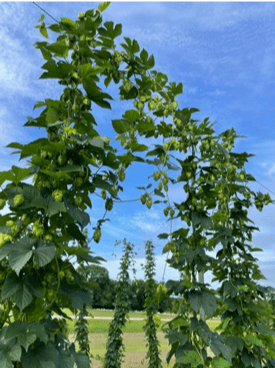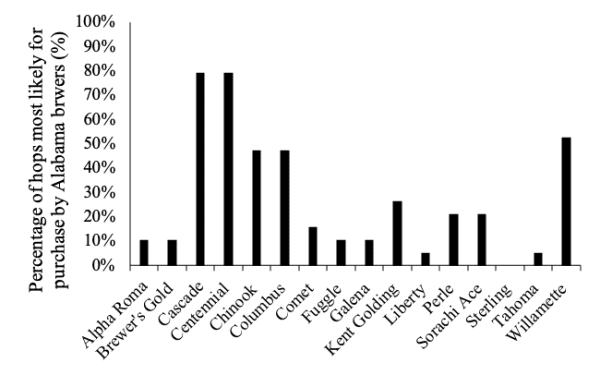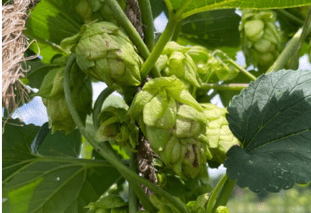Crop Production

In recent years, the desire and support from consumers to buy more locally sourced products have increased across the United States. This trend was particularly higher for specialty crop products derived from small fruits and vegetables. However, the craft beer movement in the US has increased craft breweries by 55 percent in the last 5 years. In combination, this has led to a significant impact in the southeastern portion of the country where local brewers have been requesting high-quality and locally sourced ingredients.
Hops Demand
 Hops (Humulus lupulus) are the primary ingredient that adds aroma, bitterness, and most importantly flavor to a crafted beer. Currently, only three states, Washington, Oregon, and Idaho, account for nearly 98 percent of the U.S. hop production, and the demand for hops in the Southeastern US, including Alabama, relies on this Pacific Northwest industry, despite being thousands of miles away, according to the Alabama Brewers Guild.
Hops (Humulus lupulus) are the primary ingredient that adds aroma, bitterness, and most importantly flavor to a crafted beer. Currently, only three states, Washington, Oregon, and Idaho, account for nearly 98 percent of the U.S. hop production, and the demand for hops in the Southeastern US, including Alabama, relies on this Pacific Northwest industry, despite being thousands of miles away, according to the Alabama Brewers Guild.
Resources
Lack of local resources for brewers creates a unique opportunity for Alabama growers to supply hops for this particular industry that has increased in the state. A recent survey conducted with Alabama brewers showed up hop cultivars of most desire by the brewers. The survey asked brewers to list five cultivars of the most likelihood of purchase and use in their operation. Information facilitates growers to select plant material during the establishment of a hop yard.
Cultivars of Hops
Cultivar Cascade and Centennial placed at the top desired hop cultivars, with 79 percent of preference each. Cascade is a common hop cultivar that adaptability has shown the best in the southeastern U.S., including Alabama, Florida, and North Carolina. Hop cultivars Willamette (53 percent), Chinook (47 percent), and Columbus (47 percent) placed second as most preferred among the Alabama brewers. However, these cultivars have not been evaluated for the environmental conditions of Alabama yet, and research is still required before recommendations.
In 2022, a cultivar trial will be conducted in the hop yard of the E.V. Smith Research and Extension Center, Shorter, Alabama, where a workshop will also be conducted, training growers on hop cultivar selection and crop management.


